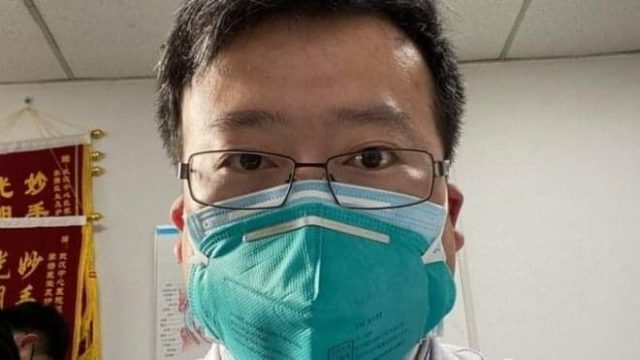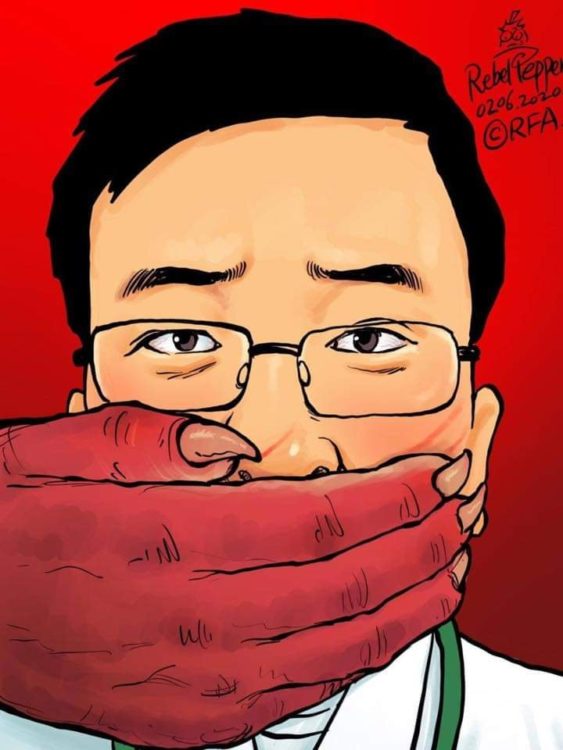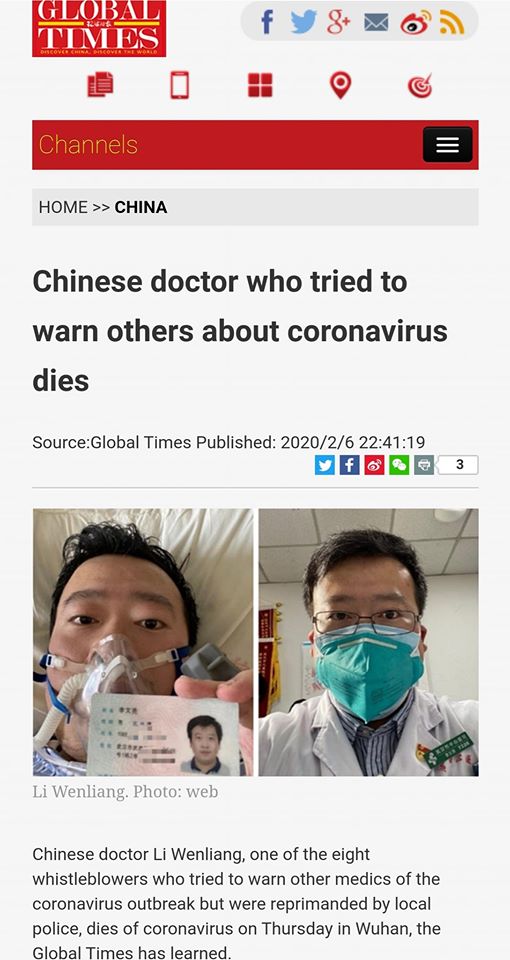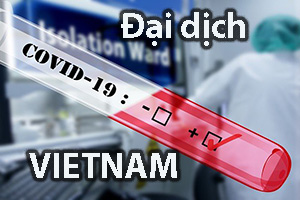Bác sĩ Li Wenliang – người hùng Wuhan coronavirus đã chết 2 lần như thế nào?
Đài truyền hình Mỹ CNN 7-2-2020 giựt tít nói về cách bác sĩ Li Wenliang (Lý Văn Lượng) “chết hai lần trên truyền thông nhà nước” ở Trung Quốc.

Người thổi còi cảnh báo sớm về dịch Wuhan coronavirus để rồi bị chính quyền và công an Wuhan truy bức và bịt miệng này đã chết lúc 21g30 ngày 6-2-2020 giờ Trung Quốc (20g30, giờ Việt Nam) khi tim anh ngừng đập vì nhiễm virus 2019-nCoV như nhật báo Global Times của đảng CSTQ đưa tin lần thứ nhất hay 2g58ph ngày 7-2-2020 (1g58ph, giờ VN) như Bệnh viên Trung tâm thành phố Wuhan – nơi anh là bác sĩ nhãn khoa và cũng là nơi chữa trị anh – loan báo trên mạng xã hội Weibo và sau đó lúc 4g thì cả báo con Global Times lẫn báo mẹ Nhân dân Nhật báo cùng đưa tin lại? Đó là câu chuyện của thuộc tính thiếu minh bạch và đầy âm mưu của hệ thống truyền thông ở nước đông dân nhất hành tinh và hiện là ổ bùng phát đại dịch toàn cầu Wuhan coronavirus. Do không thể có dữ liệu nên ta đừng mất công sa vào tranh cãi. Chỉ cần biết một sự thật: người anh hùng Wuhan coronavirus đã hy sinh – và chết vì chính dịch bệnh mà mình bị bịt miệng.

Số lượng người nhiễm và tử vong vì Wuhan coronavirus đang tăng vùn vụt càng làm cho cái chết của người thổi còi Li Wenliang thành tai họa nghiêm trọng hơn cho nhà chức trách Trung Quốc, từ Vũ Hán tới Bắc Kinh. Bác sĩ Li Wenliang 34 tuổi đã phải trả giá bằng cả mạng sống mình. Người vợ đang mang thai và cha mẹ anh phải trả giá vì đều bị nhiễm Wuhan coronavirus. Ai sẽ phải trả giá cho những cái giá máu này? Cộng đồng mạng quốc tế đang cật vấn như vậy. Vì Wuhan coronavirus giờ đây không còn là chuyện nội bộ của toàn bộ các tỉnh thành đại lục Trung Quốc mà còn là ác mộng của toàn cầu – đến nay đã lây lan tới 28 nước và vùng lãnh thổ bên ngoài đại lục Trung Quốc.
CNN’s Yong Xiong and Nectar Gan contributed to this article.
Hong Kong (CNN)The Chinese media’s reporting of the death of coronavirus whistleblower doctor Li Wenliang caused confusion and anger Thursday night (Feb 6, 2020), as Li was first pronounced dead, then alive and, finally, dead again.
The conflicting reports over his condition only exacerbated public grief among Chinese netizens who largely considered Li, 34, to be a hero for his early attempt to raise awareness of the coronavirus. Li’s actions caused him to be targeted by the local police, who tried to silence him.
Here is how the reporting of Li’s death played out over Thursday and Friday, local time:
• At around 10 p.m. Thursday, Feb 6, 2020 — News begins to circulate on Chinese social media that Li Wenliang has died of the Wuhan coronavirus.
The rumors provoke a huge outpouring of grief and anger among Chinese netizens, many of whom already saw Li as a tragic figure after he contracted the virus he had tried to warn others about.
• 10.40 p.m. Thursday — Chinese state-run tabloid Global Times announces on its Twitter account that Li has died. Shortly afterward, the Communist Party’s official newspaper People’s Daily confirms that Li is dead, saying his death has sparked “national grief.”

The two announcements published by Chinese state media about the death of Li Wenliang, which were later deleted.
The two announcements published by Chinese state media about the death of Li Wenliang, which were later deleted.
• At around 11.30 p.m. — The World Health Organization (WHO) says on its official Twitter that it is “deeply saddened” by the death of Li, but later deletes the tweet.
In a clarifying statement later, the WHO says it has no information on Li’s status and had just been responding to a question at a press conference.
• 12.38 a.m. Friday, Feb 7, 2020 — Wuhan Central Hospital releases a statement saying Li hasn’t died, but is in a critical condition and doctors are attempting to resuscitate him. At some point around this time, the Global Times and People’s Daily reports on Li’s death are deleted.
• 12.57 a.m. Friday — Global Times says on its official Twitter that Li is “still under emergency treatment.” “Reporters heard people weeping inside the ICU,” the tweet says.
The state-run tabloid says that Li’s heart stopped beating at around 9.30 p.m. Thursday local time.
• At about 2 a.m. Friday — The tide of emotion continues to grow on Chinese social media. The phrase “We want freedom of speech” begins to trend on Weibo, a Twitter-like website, before it is censored from the platform. Weibo users soon create another hashtag — “I want freedom of speech” — which quickly draws nearly 2 million views.
• 3.48 a.m. Friday — Wuhan Central Hospital announces on Weibo that Li has died at 2.58 a.m. despite attempts to resuscitate him. “We express our deep regret and condolences,” the post says.
• At around 4 a.m. Friday — The Global Times and then People’s Daily announce on their Twitter accounts that Li is dead. The former references Li’s role as a whistleblower who tried to raise awareness of the coronavirus back in December.
• Early Friday morning — The top comments under the Wuhan hospital’s announcement of Li’s death show anger at the handling of the news.
One reads post reads: “You think we’ve all gone to sleep? No. We haven’t.”
Xin mời đọc bài của CNN: How Chinese doctor Li Wenliang died twice in China’s state media
P.H.P.
+ Ảnh: Internet. Thanks.
















